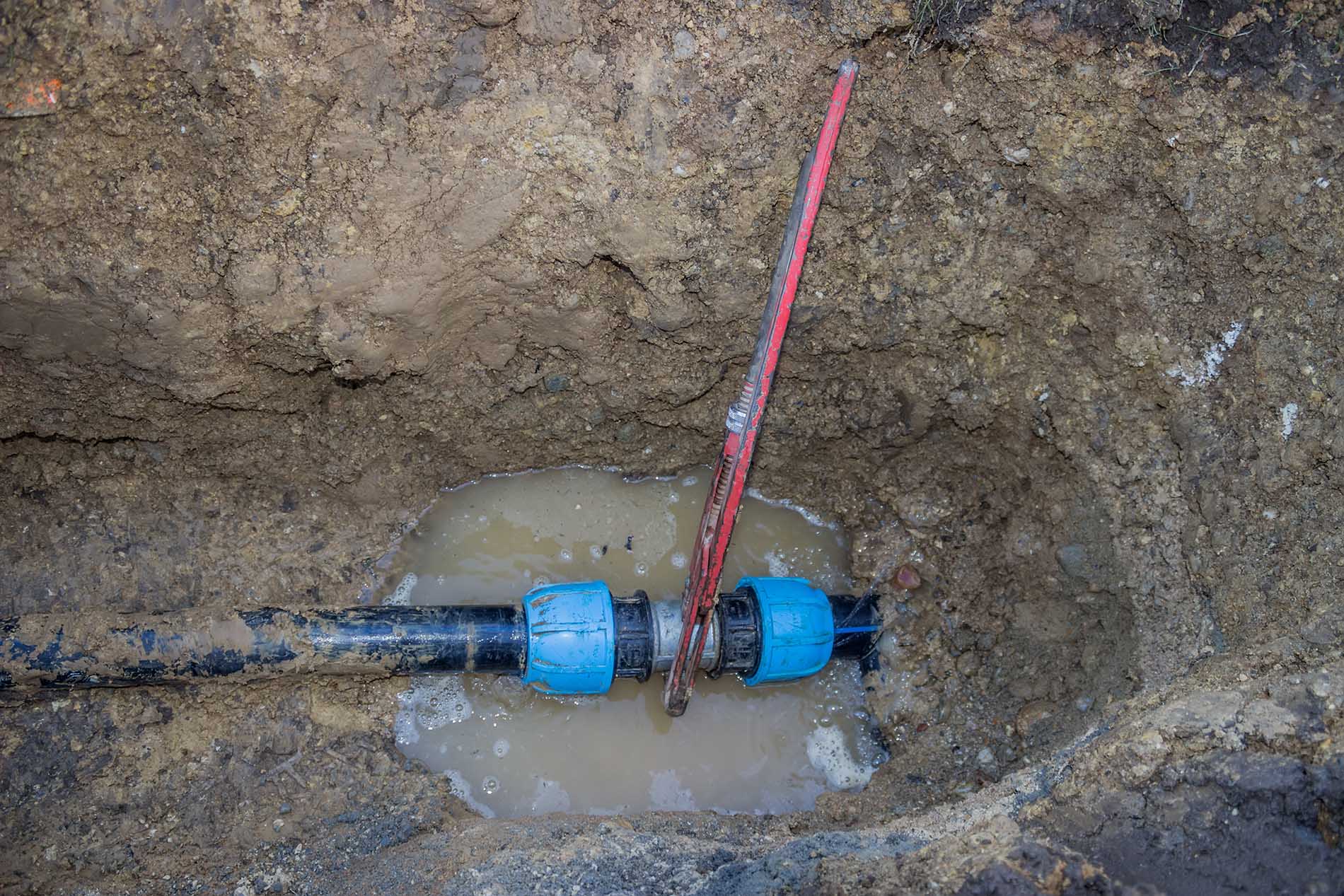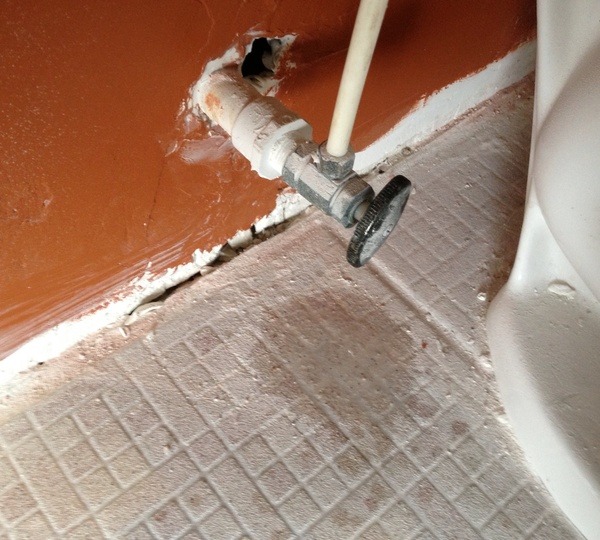5 Frequent Origins of Water Leaks
5 Frequent Origins of Water Leaks
Blog Article
What're your opinions about Common Causes of Water Leaks in the Home?

"Be careful of little expenditures. A little leakage will certainly sink a great ship." - Benjamin Franklin.
He could not have been more best since water leakages in our houses lead to a waste of sources, raising our water expenses. Although this increase might seem minimal initially, it can cause considerable expenses that can break your financial institution. Apart from an increase in expenses, water leakages additionally trigger undesirable natural development, architectural damage, as well as even electrical threats.
Identifying if you have a water leak isn't always simple because of being incapable to see a lot of the pipework in your home. However, If you have had a boost in your water costs recently, discovered water stains on ceilings and also walls, scented lousy smell, and so on. You might wish to think about requesting plumbing solutions to get it took a look at.
There are numerous root causes of water leakages, and we have actually assembled the usual reasons below. Examine to see if you have actually had associated problems in your house recently.
Obstructed drains pipes
Food bits, dirt, as well as grease can trigger clogged up drains and block the flow of water in and out of your sink. If undealt with, boosted stress within the rain gutters can cause an overflow and also finish up breaking or bursting pipes. To stay clear of blocked drains in your home, we suggest you to stay clear of pouring particles down the drain and regular cleaning of sinks.
High water pressure
You observed your house water pressure is higher than common but then, why should you care? It's out of your control.
It would be best if you cared since your ordinary water pressure ought to be 60 Psi (per square inch) and although your home's plumbing system is designed to stand up to 80 Psi. An increase in water stress can place a strain on your house pipes and also cause cracks, or even worse, ruptured pipelines. If you ever see that your home water stress is more than normal, contact a professional concerning controling it.
Corrosion
As your pipework grows older, it gets weaker and a lot more prone to rust after the constant flow of water with them, which can eat away at pipes and create cracks. A noticeable indication of corrosion in your house plumbing system is staining and although this might be hard to spot as a result of a lot of pipelines hidden away. We advise doing a constant examination every couple of years and also alter pipes once they are old to make certain a sound plumbing system
Deteriorated pipe joints
Pipe joints are the parts of our plumbing system where the pipelines connect. They are the weakest point of our plumbing system. As a result, they are extra at risk to damage. It is essential to note that even though pipes are developed to hold up against pressure as well as last for some time, they weren't created to last for life; therefore, they would wear away in time. This deterioration could cause fractures in plumbing systems. A typical indicator of harmed pipe joints is excessive noise from faucets.
Broken seals
Another source of water leaks in homes is broken seals of home appliances that utilize water, e.g., a dish washer. When such appliances are set up, seals are installed around water connectors for very easy passage of water via the device. Thus, a busted seal can cause leakage of water when in use.
With little or no knowledge of plumbing, understanding your home's plumbing system sufficient to take care of a few of these concerns (without consequence) can be a trouble. Connect with plumbing professionals in Pittsburgh, Providence, Rochester, and environ today, and they'll make those problems disappear.
He could not have been more appropriate because water leakages in our houses result in a waste of resources, boosting our water bills. If you have had a boost in your water costs recently, noticed water discolorations on ceilings as well as walls, scented poor odor, etc. A rise in water pressure can put a strain on your home pipelines as well as lead to cracks, or worse, burst pipelines. An additional reason of water leakages in residences is damaged seals of home appliances that utilize water, e.g., a dishwasher. When such devices are mounted, seals are installed around water ports for simple passage of water via the machine.
5 TIPS IN DETECTING A WATER LEAK IN YOUR HOUSE
Water leaks can be hard to find in your home, yet they can be so common. We rely on water every day in our home, which is why a leak can cause big problems. By detecting them early, you can save money and further damage, getting the problem fixed as soon as possible. Here are 5 tips to help you detect a water leak in your home, so you can contact a plumber straight away and get the issue sorted.
Check your water meter
Many people underestimate the value of the water meter in their home. It can be one of the best ways to tell if you have a leak early on, so you can get on top of it before issues start arising. Start by turning off all the water in your home: taps, washing machine, dishwasher, etc. Now take a look at the meter – if it’s still changing with everything turned off, it’s likely you have a fast-flowing leak that you need to get on top of straight away. If nothing changes, then leave your meter for an hour or two and come back to it. Did it change in this time? It’s likely you have a slower leak, which isn’t as urgent but still handy to get fixed so it doesn’t become a bigger problem.
Keep an eye on your bill
Another good way to detect a leak in your home is by keeping an eye on your water bill. It helps if you have a past bill from the same period of time. You can compare like for like and determine whether your water usage has increased significantly. If it has, there may be a leak in your system that you haven’t picked up before. A professional plumber can check through all of your pipes and determine where it is coming from.
Look for damage
If you have a leak inside your home, you will notice damage over time. Take a look at your showers and bathtubs and note whether any of the tiles surrounding the area seem to be discoloured or damaged in any way. There may be water stains, mould or peeling material that has resulted from a build up of moisture over time. Make sure you take a look under sinks at the back of cupboards that don’t get accessed regularly. This is where damage can go unnoticed and build up over periods of time.

As a reader about Where to Find Water Leaks, I was thinking sharing that segment was a smart idea. Loved our piece? Please share it. Help others discover it. I take joy in reading our article about How to Find and Prevent Water Leaks in Your Home.
Request An Appointment Report this page